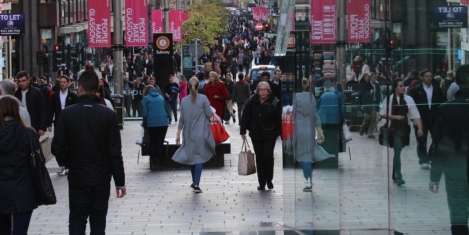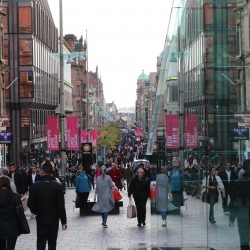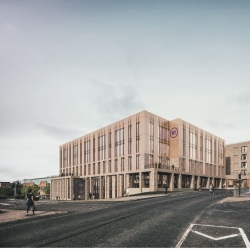To provide the best experiences, we use technologies like cookies to store and/or access device information. Consenting to these technologies will allow us to process data such as browsing behaviour or unique IDs on this site. Not consenting or withdrawing consent, may adversely affect certain features and functions.
The technical storage or access is strictly necessary for the legitimate purpose of enabling the use of a specific service explicitly requested by the subscriber or user, or for the sole purpose of carrying out the transmission of a communication over an electronic communications network.
The technical storage or access is necessary for the legitimate purpose of storing preferences that are not requested by the subscriber or user.
The technical storage or access that is used exclusively for statistical purposes.
The technical storage or access that is used exclusively for anonymous statistical purposes. Without a subpoena, voluntary compliance on the part of your Internet Service Provider, or additional records from a third party, information stored or retrieved for this purpose alone cannot usually be used to identify you.
The technical storage or access is required to create user profiles to send advertising, or to track the user on a website or across several websites for similar marketing purposes.









 The new
The new 
 Having an insecure financial situation, being bored in both work and free time, and worsening physical health were the biggest factors affecting employee’s wellbeing, during the first covid-19 lockdown, according to new research from
Having an insecure financial situation, being bored in both work and free time, and worsening physical health were the biggest factors affecting employee’s wellbeing, during the first covid-19 lockdown, according to new research from 
 Over the past ten years, reuse of furniture and furnishings has been extremely limited. Most redundant assets have been discarded to landfill. It’s a brutal fact that it is the easy and less expensive option. Many products sent for recycling often end up in landfill or incineration and so still contributing to carbon emissions. As offices plan for
Over the past ten years, reuse of furniture and furnishings has been extremely limited. Most redundant assets have been discarded to landfill. It’s a brutal fact that it is the easy and less expensive option. Many products sent for recycling often end up in landfill or incineration and so still contributing to carbon emissions. As offices plan for 
 Paradoxically, more in-person work environments and the concentration of jobs in cities could be a medium- to long-term impact of the pandemic’s shift to remote working, suggests
Paradoxically, more in-person work environments and the concentration of jobs in cities could be a medium- to long-term impact of the pandemic’s shift to remote working, suggests 
 The latest
The latest 
 Women’s average working hours have taken a far smaller hit during the pandemic than men’s, with women who do not have children now working longer hours than ever before – in marked contrast to predictions of a ‘shecession’ at the start of the pandemic, according to new research by the
Women’s average working hours have taken a far smaller hit during the pandemic than men’s, with women who do not have children now working longer hours than ever before – in marked contrast to predictions of a ‘shecession’ at the start of the pandemic, according to new research by the 


 Job quality in the UK has been surprisingly unaffected by the Covid pandemic so far but continues to fall short on a number of key measures, according to the
Job quality in the UK has been surprisingly unaffected by the Covid pandemic so far but continues to fall short on a number of key measures, according to the 
 Occupiers and landlords of commercial property should partner on a path towards full economic reopening by taking decisive action to address commercial rent challenges, says the
Occupiers and landlords of commercial property should partner on a path towards full economic reopening by taking decisive action to address commercial rent challenges, says the 
 BT has today announced plans to develop a brand new, multi-million pound contact centre in Dundee which will become the new home to around 1,000 employees. The new office will be at West Marketgait in the heart of the city centre, close to the waterfront and part of a £1bn regeneration area. When the building is complete, expected in late 2023, the contact centre will be one of around 30 of BT’s new future-fit offices in the UK, developed as part of its ‘
BT has today announced plans to develop a brand new, multi-million pound contact centre in Dundee which will become the new home to around 1,000 employees. The new office will be at West Marketgait in the heart of the city centre, close to the waterfront and part of a £1bn regeneration area. When the building is complete, expected in late 2023, the contact centre will be one of around 30 of BT’s new future-fit offices in the UK, developed as part of its ‘








July 16, 2021
Is it time for a carbon tax?
by Joanna Knight • Comment, Environment, JK, Workplace design